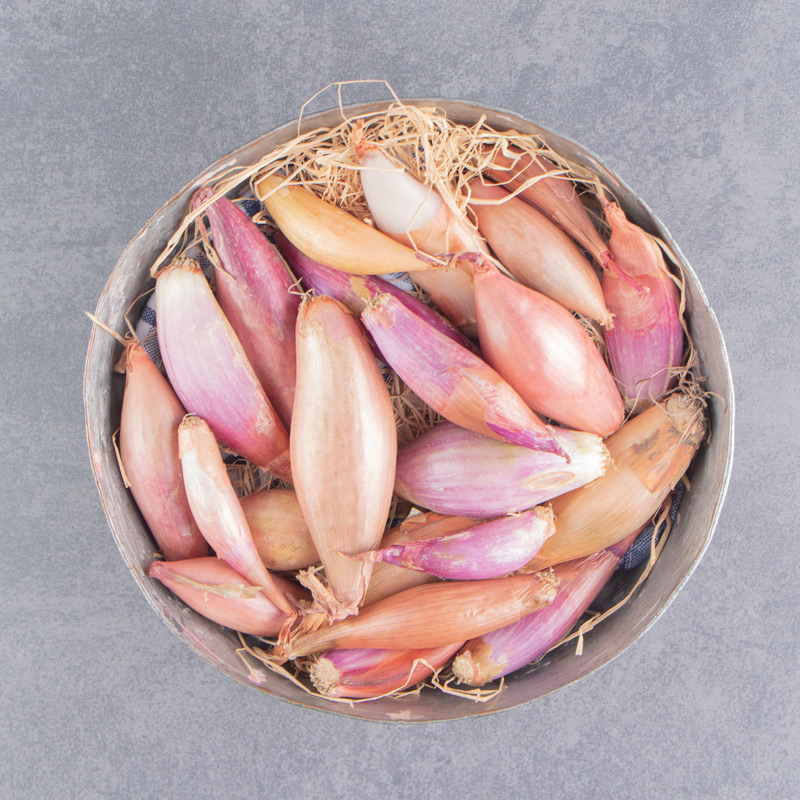
100 gr |
-- |
|
|---|---|---|
| Carbohydrate (gr) | 15.04 |
4928.47 |
| Protein (gr) | 3.59 |
1176.23 |
| Fat (gr) | 12.46 |
4083.43 |
| Fiber (gr) | 1.36 |
445.97 |
| Cholesterol (mg) | 14.64 |
4795.8 |
| Sodium (mg) | 325.27 |
106557.75 |
| Potassium (mg) | 392.16 |
128471.4 |
| Calcium (mg) | 78.15 |
25603.27 |
| Vitamin A (mg) | 46.04 |
15084.01 |
| Vitamin C (mg) | 6.16 |
2019.31 |
| Iron | 0.62 |
203.1 |
Shallot, a close relative of both garlic and onions, is a culinary and medicinal treasure. Its pungent flavor and numerous health benefits have made it a staple in many cuisines around the world. Packed with antioxidants, vitamins, and minerals, Shallot offers a wide range of health advantages.
The calories in 100 grams of shallots are 72 calories
Immune System Booster: The high antioxidant content in Shallot helps strengthen the immune system, making it an excellent natural defense against common colds, flu, and other infections.
Heart Health: Regular consumption of Shallot can help lower blood pressure, reduce bad cholesterol levels, and prevent blood clots, thus promoting heart health.
Blood Sugar Regulation: Shallot has been shown to help regulate blood sugar levels, making it a beneficial food for people with diabetes.
Digestive Health: The fiber content in Shallot aids in digestion and can help prevent constipation.
Anti-inflammatory Properties: Shallot possesses potent anti-inflammatory properties, which can help reduce inflammation throughout the body and alleviate symptoms of conditions like arthritis.
Skin and Hair Health: The vitamins and minerals in Shallot promote healthy skin and hair. It can help reduce acne, eczema, and other skin conditions.
Detoxification: Shallot supports liver function and helps cleanse the body of toxins.
Cancer Prevention: Some studies suggest that the compounds in Shallot may have anticancer properties, helping to protect against certain types of cancer.
Nutritional Profile:
While the exact nutritional content can vary depending on growing conditions, Shallot is generally low in calories and rich in vitamins C, B6, and manganese. It's also a good source of minerals like iron, selenium, and calcium.
Shallot can be used in a variety of dishes, including soups, stews, salads, and sauces. Its strong flavor can add depth and complexity to many recipes.
Incorporating Shallot into Your Diet:
To enjoy the benefits of Shallot, consider adding it to your diet in the following ways:
Minced: Add minced Shallot to soups, stews, and sauces.
Chopped: Use chopped Shallot as a topping for salads or pizzas.
Infused: Create a Shallot-infused oil or butter for flavoring roasted vegetables or bread.
Caution:
While Shallot is generally safe for consumption, some people may experience allergic reactions. If you have a known allergy to garlic or onions, it's best to avoid Shallot.
Shallot is a versatile and nutritious herb that offers a wide range of health benefits. By incorporating Shallot into your diet, you can support your overall health and well-being.